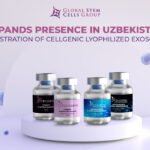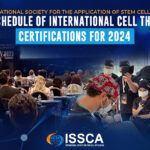The US blood donation centers are making unarguable efforts to collect plasma from COVID-19 patients who have recovered from the disease. They are hoping to use it to save the life of those who are still infected with this disease.
According to the guidelines released on Tuesday by AABB, an international nonprofit agency focused on transfusion medicine and cellular therapies, many community blood centers located nationwide could be an important source for this Old treatment method known as Convalescent plasma therapy.
In this treatment method, Blood products are taking from patients who survived this viral disease, and it’s been injected into those that are still infected. This experimental practice has a history of been used in the 1930s to treat measles. In the 1918s, during the disastrous flu, recently, this plasma therapy has been used to treat those infected with H1N1 influenza, SARS and Ebola.
Clinical researches have shown that the use of plasma offers some hope and reduces symptoms and fatalities in past outbreaks of coronavirus.
In the recent surge of COVID-19, unproven evidence from china has shown that passive antibody treatment has helped COVID-19 patients until they were able to develop their natural antibodies that can fight off the disease.
This procedure is a promising one to try given that there’s no treatment or vaccine for COVID-19, experts say.
“There’s nothing else out there,” said Dr. Louis Katz, an expert in the blood industry, leading the AABB’s working group on Convalescent plasma.
The new guidelines were made a week later after the Federal Food and Drug Administration authorized the immediate use of Convalescent plasma by doctors for critically ill COVID-19 patients.
The first medical center to use this therapy is the Houston Methodist Hospital, and they have been able to treat two COVID-19 patients since Saturday, says a spokesman. The results are pending.
The New York blood center and some other sites have begun the collection of plasma since last week from patients who have recovered from this pandemic infection, and a few clinical trials have started to test this convalescent plasma for COVID-19. The American Red Cross has organized a site to collect information about potential plasma donors.
As the AABB join the effort with America’s Blood Centers, a new rollout could develop the practice exponentially, said Katz.
“This is all the medicine on the fly, right?” we don’t have the randomized controlled trials. We’re going to do our best that we can,” said Katz.
At community blood centers, the plasma will be collected from COVID-19 survivor donors with a lab-confirmed test; these donors must have tested negative and stopped experiencing symptoms for over 28days, according to the guidelines.
Several research laboratories and medical companies are trying effortlessly to detect the antibodies that fight the virus. It may be hard for some blood centers to access the test at first, says Katz.
Meanwhile, centers will be allowed to collect plasma from COVID-19 survivor donors, and it will be administered to “Critically ill patient as quickly a possible” and then test for antibody titers later, Said the FDA spokesman on Tuesday.
This will make a great difference in the potential amount of plasma collected from COVID-19 survivors. Said Katz. “We can go the whole hog, now that we have such an accommodating stance from the agency”, he also said.
Felberbaum noted that an emergency investigational new drug or e-IND, authorization is required to transfuse convalescent plasma into patients, but not to distribute it after collecting it from the donor. According to him, the FDA has granted “numerous” requests for emergency INDs and continues to grant them as they are received.
Seattle-area blood center, Bloodworks Northwest, is working effortlessly with the National institutes of health and the University of Washington to start harvesting plasma from victims who have recovered from COVID-19. These donations will become a part of a research study co-led by a professor of medicine, Dr. Terry Gernsheimer, at UW school of medicine. They will also be recorded in a national registry being created to track the result of the plasma therapy, says Dr. Rebecca Haley, a medical director of Bloodworks Bio that produces biological products.
There is a high expectancy of interest among those who have suffered through the global infection.
Dr. Jon Peters is a 66 years old family practice physician in Portland who is also a victim of the Pandemic infection. Although he’s at home and still experiencing symptoms, he plans to donate plasma and get back to work as soon as his symptoms subside and once he’s able to do so.
There is a very low-risk issue or complication for the donor but could be a lifesaver to someone out there, he said.
It is good to know that “at this point, they require every option they can get” hence, this therapy can offer a solution to this ravenous pandemic.







